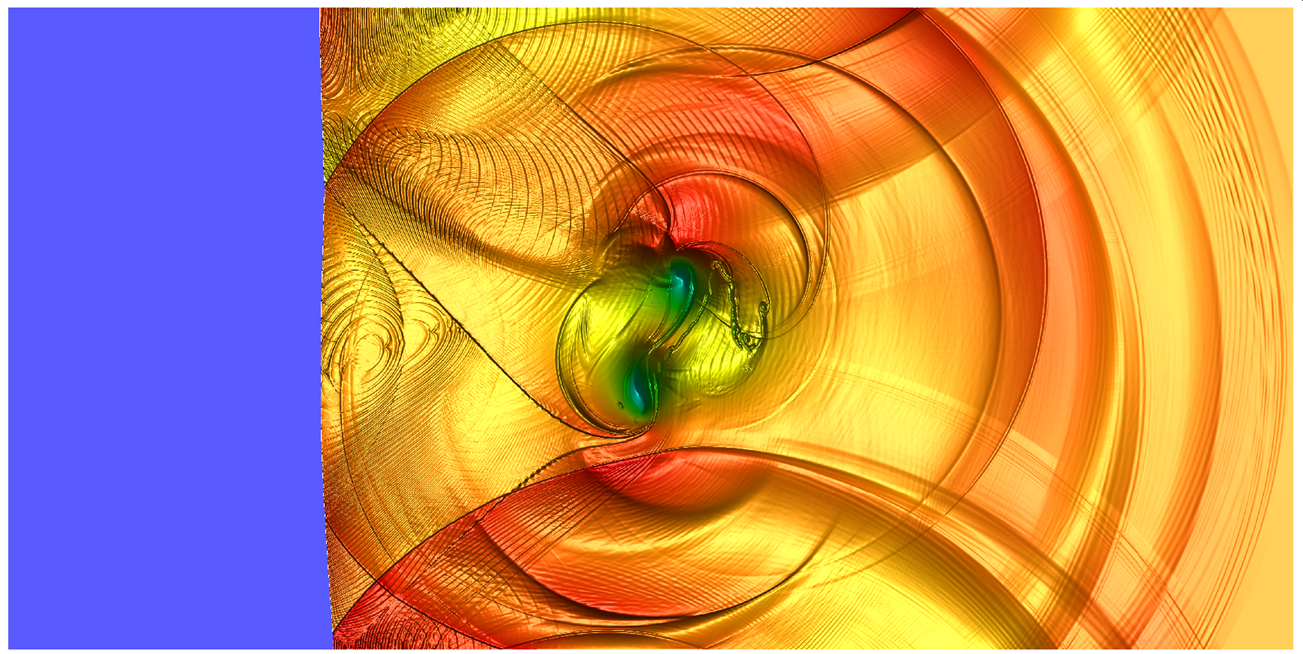Context

Aims and scope
The International Workshop on High Order CFD Methods aims at
- providing an open and impartial forum for evaluating the status of high-order methods (order of accuracy > 2) in solving a wide range of flow problems;
- assessing the performance of high-order methods through comparison to production 2nd order CFD codes widely used in the aerospace industry with well defined metrics;
- supporting new research in the field of high order CFD methods by providing validation cases and aid during development and improvement of codes;
- identifying pacing items in high-order methods and peripheral tools that need additional research and development in order to proliferate in the CFD community;
- facilitating international collaboration and enhance mutual understanding among CFD researchers and managers in academia, government, and industries.
Test case categories
Please read the guidelines before running any test cases.
The test cases are organized following 3 categories of increasing difficulty
- Verification and validation test cases (V/W) are simple benchmarks to help participants to test, validate and improve their method and code. Participants are encouraged to use as many of these cases as they see fit to verify their codes. The workshop however will not include any participant presentations dedicated solely to verification cases. Instead, each advanced test case is paired with one required verification case. Four subcategories have been identified: VI (inviscid), VL (laminar), VR (RANS) and VS/WS (DNS or LES). Execution times for verification cases are optional, but encouraged.
- Workshop test cases (C) compare capabilities and performances of high order codes on challenging cases. Each case has a mandatory contribution, and a required verification case. The cases are divided into subcategories: CI (inviscid), CL (laminar), CR (RANS) and CS (DNS or LES). Please follow the guidelines for measuring execution time and residual convergence.
- Computational challenges (MC) aim at testing the limits of the computational chain for complex applications. Two types of participation can be provided. Meshing participants are expected to provide a meshing strategy for a given geometry (CAD) and mesh specifications. A second contribution consists of the actual computation. The meshing strategy should be available 3 months in advance to allow to the test case leaders and computation participants to test the meshes, iterate on the mesh specifications and finalize their computations, which are due one month before the workshop.
A close interaction with the organizers and other participants is foreseen, therefore at least preliminary results are expected 3 months before the workshop, i.e. October 1 2017.
Meshing challenge grids should be available by July 1 2017 on the website.
All verification test cases provide meshes that are mandatory. These are available either in CGNS and Gmsh file formats, or as a set of python scripts capable of writing to a number of file formats. Some meshes are also provided for the advanced test cases, but these are not mandatory.
For all test cases in categories (A) and (V/W) mesh suites are available, either as downloadable files or on request.
Organization
The fifth edition will organized at the occasion of the 2018 AIAA SciTech Conference. It will take place at the same location, during the weekend preceding the conference (6-7 January 2018). Preliminary results should be reported to the organizer of the advanced test case by October 1 2017. This may be as little as showing results on just one or two meshes. What is most important is initiating communicating with the organizers.
Intent to Participate or Attend
Please let us know if you intend to participate in the workshop by emailing us at info cenaero [dot] be (info[at]cenaero[dot]be). Please include what test case(s) you would like to contribute to. Please also let us know if you intend to attend the workshop without participating. These are not commitments, but they help with planning the event.
cenaero [dot] be (info[at]cenaero[dot]be). Please include what test case(s) you would like to contribute to. Please also let us know if you intend to attend the workshop without participating. These are not commitments, but they help with planning the event.
Registration
All participants and attendees must register for the High-Order Workshop through the AIAA registration webiste. There is a drop down box after you have logged in that allows you to register for workshops. Note that registering for the Future CFD Technologies Workshop will also give you access to the High-Order Workshop, and vice versa (you do NOT need to register for both). Registration is available until the day before the workshop.
Submission Deadline
Any participants, if they have not already done so, should get in touch with the respective test case leader as soon as possible. Final results should be submitted no later than Dec 18 2017. However, mistakes have been discovered during the submission for past workshops, so participants are encouraged to submit their data as soon as possible. Extensions to the deadline may be granted at the discretion of the test case leaders on an individual basis.
Downloads:
Contact:
info cenaero [dot] be (info[at]cenaero[dot]be)
cenaero [dot] be (info[at]cenaero[dot]be)